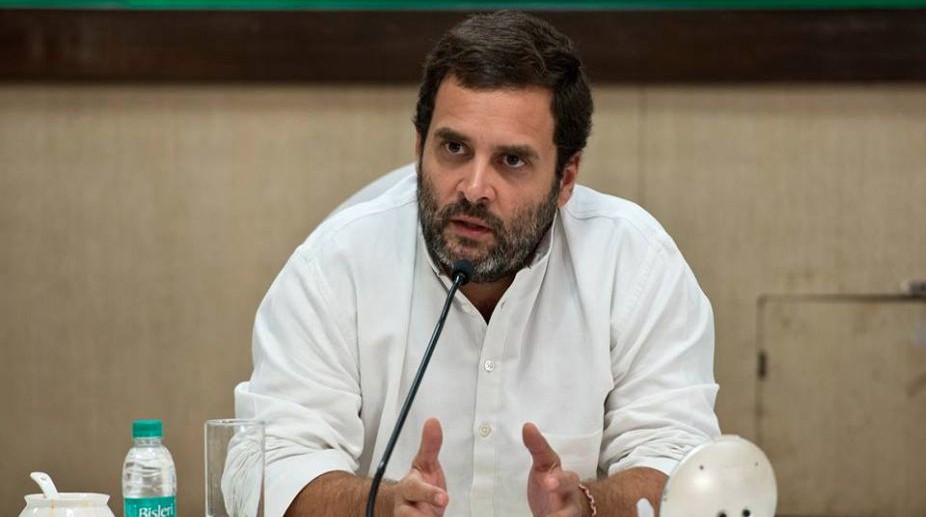Congress president Rahul Gandhi on Monday launched an attack on Prime Minister Narendra Modi saying all his interviews on public platforms were scripted.
The Congress chief was referring to an interview of PM Modi that he gave at Singapore’s Nanyang Technological University (NTU) last Friday. At the interview, PM Modi was responding to the questions in Hindi, and an interpreter was translating it in English immediately. Responding to a particular question, the Prime Minister gave his answer in Hindi, but the English version given by the translator was way lengthier, and more detailed than Modi’s answer.
Advertisement
The Gandhi scion took to Twitter and wrote that if PM Modi took real questions it would be a real embarrassment to all.
“The first Indian PM who takes “spontaneous” questions that the translator has pre-scripted answers to! Good that he doesn’t take real questions. Would have been a real embarrassment to us all if he did,” he tweeted.
With the translated version also giving out some details that the PM did not even mention in his reply, many are speculating that the interview of PM Modi, the queries and his responses to them were all scripted and not spontaneous.
On Friday, PM Modi was interviewed by NTU president Subra Suresh before a live audience. Suresh took questions from select, pre-decided members of the audience.
During the programme, Suresh asked Modi about the challenges faced by Asia and what it needed to do to address them, to which the PM replied: “Suresh asked me about the challenges faced by Asia in its ambition to have a bright future. One fact is clear that the entire world is now convinced about the 21st century belonging to Asia. The biggest challenge is whether we the people of Asia feel this fact or not. Is it that we are only feeling good about hearing or it’s actually motivating us to make the 21st century the century of Asia. This is a big challenge. Even today, we are still influenced by other parts of the world since this is how we’ve lived our life. That’s why even we find it hard to believe that this is our turn, we are capable of doing something and we will do it.”
The response of the translator, however, raised several eyebrows. The translated version was: “The question that was posed to me by Suresh was Asia’s main challenges and how can we resolve them. First of all, I think the biggest challenge before us is that the 21st century belongs to Asia, and do we really feel this ourselves, do we have this sentiment? I think that is the biggest challenge because in this part of the world, we have been so much impressed by the rest of the World that we do not feel that now it is our turn. Asia has seen the maximum rise in prosperity, opportunity and freedom in the World. Japan led the process, Asian tigers followed, China has become a major economy and it is India’s turn to progress now. Yet, Asia has many challenges, South Asia, South-East Asia in particular, have similar strengths and opportunities, weaknesses and challenges. There are the following challenges that are common: Skills for the digital age, creating adequate jobs in the age of digital reception, agriculture, productivity, water, pollution, rapid and mass urbanization, sustainable habitats and affordable housing, climate change, protection of biodiversity, building sustainable infrastructure, affordable healthcare, protecting our ocean and blue economy. These challenges require collaboration among governments, universities and laboratories. Policy interventions are important. A lot of finance would be needed, but given the scale and magnitude. We need innovation and technology to address these challenges. These should be the priorities of our governments.”
A video of the interview has gone viral on social media.











